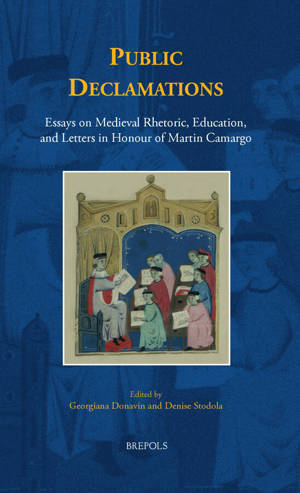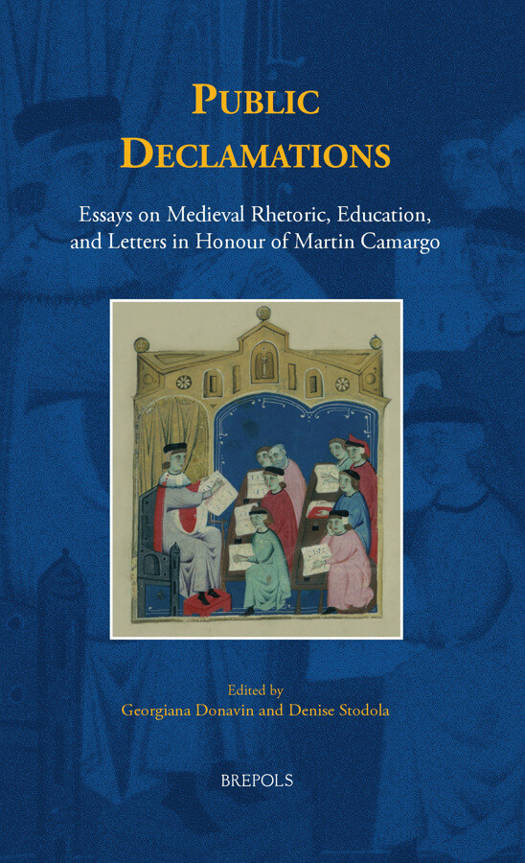
- Afhalen na 1 uur in een winkel met voorraad
- Gratis thuislevering in België vanaf € 30
- Ruim aanbod met 7 miljoen producten
- Afhalen na 1 uur in een winkel met voorraad
- Gratis thuislevering in België vanaf € 30
- Ruim aanbod met 7 miljoen producten
Zoeken
Public Declamations
Essays on Medieval Rhetoric, Education, and Letters in Honour of Martin Camargo
Georgiana Donavin
Hardcover | Engels
€ 100,70
+ 201 punten
Omschrijving
Martin Camargo, Professor of English, Medieval Studies, and Classics at the University of Illinois at Urbana-Champaign, is a beloved teacher, mentor, colleague, and the scholar whose work this collection celebrates. With interests in defining 'medieval rhetoric', understanding the history of both literary and bureaucratic epistles, explaining the revival of rhetorical studies in fourteenth-century England, editing texts for teaching the trivium, and excavating performance pedagogies in medieval language classrooms, Carmago has paved the way for scholars in many fields, including educational and institutional history; literature, language, and manuscript studies; and rhetoric in the Middle Ages. This book pays tribute to his own ground-breaking research by presenting original and inventive new work in many of these fields. Authored by established scholars and innovative new researchers alike, the essays contained in this volume give significant scope to didactic medieval commentaries, theories of medieval rhetoric and language, literary epistles and the ars dictaminis, and poetry of various genres including romances and riddles, as well as to the classroom practices that all of these investigations infer. In keeping with Camargo's generosity in sharing resources, the authors hope that their essays in turn will provide encouragement and suggestions for further work.
Specificaties
Betrokkenen
- Auteur(s):
- Uitgeverij:
Inhoud
- Aantal bladzijden:
- 292
- Taal:
- Engels
Eigenschappen
- Productcode (EAN):
- 9782503547770
- Verschijningsdatum:
- 6/08/2015
- Uitvoering:
- Hardcover
- Formaat:
- Genaaid
- Afmetingen:
- 163 mm x 239 mm
- Gewicht:
- 589 g

Alleen bij Standaard Boekhandel
+ 201 punten op je klantenkaart van Standaard Boekhandel
Beoordelingen
We publiceren alleen reviews die voldoen aan de voorwaarden voor reviews. Bekijk onze voorwaarden voor reviews.







